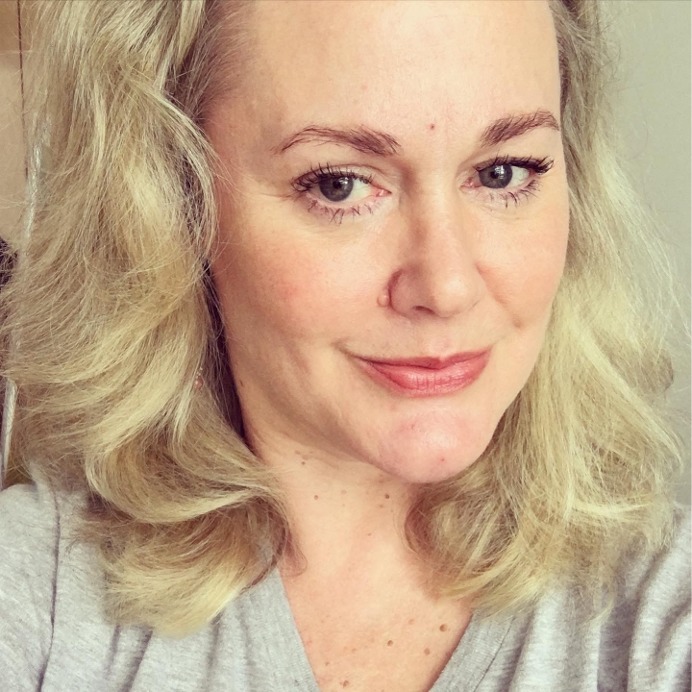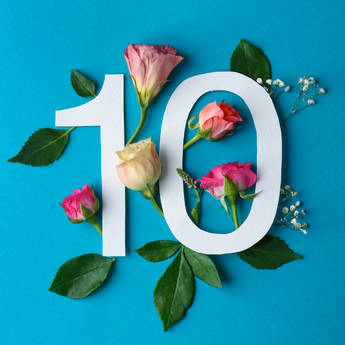 In this new, monthly column, senior writer and editor Adriana Ermter shares her personal experiences with breast cancer.
In this new, monthly column, senior writer and editor Adriana Ermter shares her personal experiences with breast cancer.
By Adriana Ermter
It’s funny how breast cancer changed the way I feel about myself and my life. Not in a ha-ha sense, although trust me, I would like to laugh more. And not in a questioning kind of way either, although I did torture myself during the first couple of weeks after my diagnosis, looking for the answer to explain why I had breast cancer. As far as I was concerned it was because I never wore sunscreen as a kid; I drank and smoked my way through my twenties; worked 80-hour, ladder-climbing work weeks in my thirties and went through a heartbreaking divorce that left me feeling like road kill in my forties. Except that it wasn’t.
According to my entire medical team, none of my past behaviours or experiences explained the hard lump growing inside my right armpit. Breast cancer is random, they said. So even though the Canadian Cancer Society states that 75 Canadian women are diagnosed with breast cancer while another 14 die from it every single day (which, BTW, is 27,375 diagnosed and 5,110 deceased each year), unless you have a family history, have previously undergone radiation or have had a different type of cancer or are over the age of 50, which, according to the Government of Canada makes up 83 percent of all new breast cancer occurrences, you’re not considered at risk.
I had nothing to pin my diagnosis on. And this felt like a big, fat let down. I wanted to blame myself. I needed to have a reason for having cancer. Otherwise, what the f**k?!
I could have wallowed in these feelings for a bit and sometimes I think maybe I should have. After all, the level of sucky-ness of dealing with breast cancer is real. Plus, the amount of cookie dough ice cream I could have justified eating would have been great. But I didn’t. Something deep down inside of me that I don’t even know how to explain but is always and has always been there, made me choose finding the silver lining in every moment, instead.
I know. It sounds super hokey. To the point where I’ve deleted and re-pasted that last bit twice now, but it’s true so I’m leaving it in. Because let’s face it, if my choice had been even remotely calculated I would have picked ice cream, stocked up on sweatpants and avoided mirrors. Choosing to find the silver lining was simply the sole thought to pop into my head as the doctor’s words: you have breast cancer, hung in the air as he tapped the black and white scan featuring the lesion inside my armpit. So I went with it. I figured I had nothing to lose and you know what? It was a great decision to make, because it has helped me stay positive throughout my entire cancer experience, then and now. That’s what happens when you look for silver linings. They show up and often, they create joy. Here are some of mine.
1. Gratitude
Not to go all Pollyanna, but facing a life-threatening disease pushed me to focus a little more clearly on the good things in my life and why I’m grateful for them. Like, the beautiful condo I bought by myself with my own money and the editorial projects I choose to work on in it. Obviously family and friends fit into my gratitude list, but as crazy cat-lady as it sounds, I’m particularly grateful for my rescue kitty, Trixie-Belle. I’m single, so having her by my side for 15 years and counting, through career highs like, being the beauty director for FASHION magazine and lows like, being let go from a small publication that now no longer exists, is pure comfort. Trixie snuggled me through the dark days of my marriage and divorce, and since my cancer diagnosis, has taken on the role of protector sitting directly in front of and then staring down guests when she feels they’ve overstayed their welcome in our home. Recently, I’ve started working out again and Trixie clearly sees herself as my cheerleader. She rotates between sitting on the coffee table and meowing or flopping in the middle of my yoga mat and purring—all while I try to workout around her.
2. Colour
Purple lilacs, green palm trees, fuchsia lipstick, vibrant blue oceans, illustrated notebooks … I’m drawn to colour, so much so that I paint for a hobby. With the exception of junior high school, I’ve never taken an art class so I don’t actually know what I’m doing. But I like it. When I was going through treatment, I bought a big canvas and set it up on my easel in my tiny living room. On the days that I had enough energy, I would mix-master one colour and use it to paint the word “love” over and over across the canvas. I chose the word intentionally. I live alone (with Trixie-the-cat) and needed a visual reminder to take care of myself throughout treatment and to love myself despite the not-so-pretty body changes I continue to experience thanks to Tamoxifen. I can’t remember how long it took me to finish the painting, maybe a month, possibly two, but definitely enough time to now have layers of colourful “love” scrawled together and framed in gold, hanging in my living room where I can see it and, hopefully, feel it every day.
3. Friendships
You know the expression that some friends are with you for a reason, a season or a lifetime? I believe it. When I was first diagnosed, my lifetime friends became crystal clear to me, because along with my sisters and parents, they were the only people I wanted to share my diagnosis with. Later, over the months filled with surgery and treatment, I slowly opened up to others, but it wasn’t until one beautiful soul convinced me that writing about my experiences could help other women that I began to speak and write publicly about having breast cancer. This encouraged many people to reach out and for the most part it has been really nice. Sharing my experiences so openly introduced me to a fellow breastie, who has become an important link in my friendship circle. It also broke years’ worth of silence between a friend and I, and gifted us with a better, more balanced friendship. In another instance, it validated a choice I made six years ago to end a long-term friendship. While the former friend emailed to express she was sorry to hear I had breast cancer, her wording felt obligatory rather than compassionate, reinforcing that our friendship isn’t meant to be right now.
4. Books
I work as an editor and writer so I read everything, from blogs and Instagram posts to magazines and research papers, but books are my heart and soul. When I went through my separation and divorce, I lost my ability to read. I didn’t have the energy and just holding a book felt exhausting. Even if I had been able to concentrate on the words on a page, I was ugly crying so much that the slightest bit of emotion in any story would have sent me into floods. Ironically, despite being extremely physically and emotionally drained, I’ve read throughout my breast cancer journey. Mostly non-fiction memoirs, written by regular women like, Periel Aschenbrand, Karen Connelly and Jean Sasson. (Sorry, Michelle and Hills, some other time!) Something about reading real women’s real life stories inspires me and feels like a mini break from my own life. These books also fill me with hope, information and ideas.
5. Opportunity
I’ll never forget the day I laid on the couch watching back-to-back episodes of a reality TV show about a world champion cheerleading club in Cambridge, Ontario called the Sharks. At the time, I was having radiation treatment every morning and working eight hours in the office, so when I wasn’t sleeping I was lying on the couch. I’d never really watched cheerleading before and once I got past the massive hair bows and bold competition makeup, it was awesome. I loved how the club’s head coach, Ali Moffatt, interacted with and motivated her athletes. It reminded me of when I used to coach high performance athletes in synchronized swimming. I’d been out of the sport for well over a decade, but suddenly, I wanted back in. Coaching synchro had always felt meaningful and would allow me to give back to a new generation of athletes. So I dug around online, spoke with a couple of clubs and that fall, I was the proud coach to two incredible 11 year olds. Ten months after that, I spent the summer co-coaching the top provincial team to a silver medal at the Pan Am Trials. Because I quit my office job, I’m now at the pool about 40 percent of the time, while still writing and editing the other 60 percent. It’s beyond rewarding. Sure, getting up to speed on all of the changes in synchro (now called Artistic Swimming), is an ongoing process and my cancer brain still has embarrassingly bad short-term memory-recall, but I’m happy. I saw an opportunity to change my life and I took it. I think that counts for something.
Adriana Ermter is an award-winning writer and editor. Her work can be read in Figure Skater Fitness, Canadian Hairdresser and IN Magazine, as well as online at 29Secrets.com, RethinkBreastCancer.ca, Popsugar.com and AmongMen.com. The former Beauty Director for FASHION and Editor-in-Chief for Salon and Childview magazines lives in Toronto with her very spoiled cat, Trixie-Belle. You can follow Adriana on Instagram @AdrianaErmter or on Twitter @AErmter






